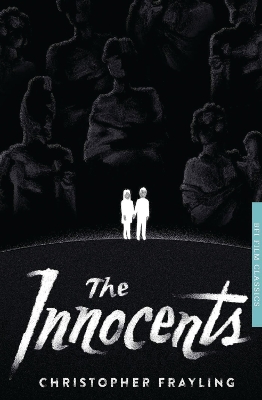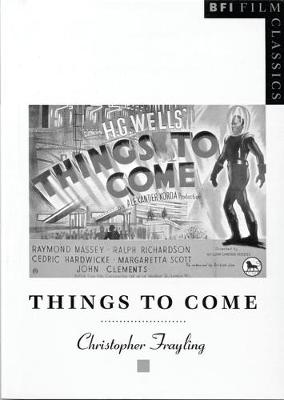BFI Film Classics
2 total works
Jack Clayton's gothic masterpiece The Innocents, though not a commercial success on its release in 1961, has been hailed as one of the greatest psychological thrillers of all time. Dividing reviewers with its ambiguous depiction of ghosts, the film ignited a debate about the aesthetics of horror which still rages today.
In this stimulating introduction to The Innocents, Sir Christopher Frayling traces the film from its genesis in the original novel The Turn of The Screw by Henry James, via contemporary critical contexts and William Archibald's 1950 stage adaptation of the same name, to the screenplay by William Archibald, Truman Capote and John Mortimer. Drawing on unpublished material from Jack Clayton's archive - including Capote's handwritten drafts for the film - and interviews with Deborah Kerr, Freddie Francis, and John Mortimer, Frayling explores how this classic ghost story came to life on screen.
This special edition features original cover artwork by Matthew Young.
In this stimulating introduction to The Innocents, Sir Christopher Frayling traces the film from its genesis in the original novel The Turn of The Screw by Henry James, via contemporary critical contexts and William Archibald's 1950 stage adaptation of the same name, to the screenplay by William Archibald, Truman Capote and John Mortimer. Drawing on unpublished material from Jack Clayton's archive - including Capote's handwritten drafts for the film - and interviews with Deborah Kerr, Freddie Francis, and John Mortimer, Frayling explores how this classic ghost story came to life on screen.
This special edition features original cover artwork by Matthew Young.
The release of "Things to Come" in 1936 was one of the key moments in the history of science fiction in the cinema. The film was the brainchild of H. G. Wells, whose worldwide reputation as a thinker had persuaded its producer, Alexander Korda, to offer him a contract giving him virtually total control over the project. Korda drafted a dazzling array of talents to render into pictures Wells's ideas of the future a hundred years hence. His brother, Vincent Korda, a distinguished painter, was employed as art director, and the Bauhaus artist Laszlo Moholy-Nagy contributed ideas for futuristic sets. As director, Korda hired William Cameron Menzies, who had practically invented the profession of Hollywood art director through his work with Douglas Fairbanks on "The Thief of Baghdad "and Rudolf Valentino on "Son of the Sheik," and whose career would climax with "Gone With the WInd." The result was a landmark in cinematic design. Christopher Frayling shows, with a wealth of illustrations, how the boldness and brilliance of the sets and costumes mark out "Things to Come "as British cinema's greatest contribution to the science fiction genre, amply justifying his judgement that ""Things to Come "is to modernism as "Blade Runner" is to postmodernism."

